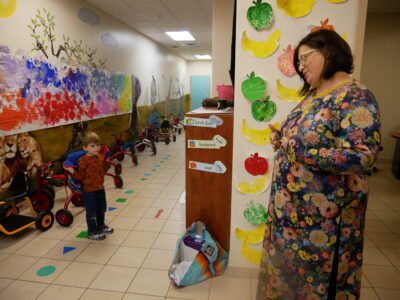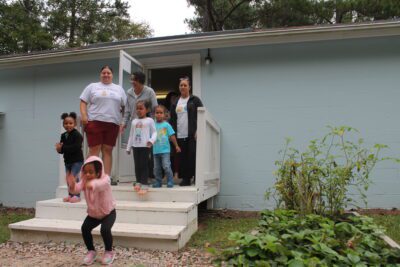
|
|
On a recent Wednesday in Burlington, Vermont, a teacher blew bubbles over two infants lying side by side, of the 80 young children now able to attend The Homestead, a private child care program that just opened a new site.
Legislators, advocates, and business leaders watched the bubbles from the classroom’s doorway, gathered to celebrate the school’s third location — and its reason for opening.
The school’s expansion was a response to a law enacted by the state this year, Act 76, that will provide an annual $125 million in child care funding across the state through a new payroll tax.
“This is the physical embodiment of what that kind of investment looks like,” co-owner Leigh Lamphere said during the kickoff of the “Courage in Action Child Care Tour,” a statewide tour recognizing the new law and what it will mean for communities. Lamphere said the program would not have expanded without the incoming state funding.

Meanwhile, North Carolina faces child care closures as programs run out of federal pandemic relief funds next summer from the American Rescue Plan Act. The state legislature did not step in with substantial funding to stabilize the industry despite calls to do so from advocates, providers, legislators, and the business community. Six programs closed last week in western North Carolina, and experts expect higher costs for parents and reduced capacity for programs, along with more closures, in the coming months.
EdNC traveled to Vermont to learn more about the difference that state investment is already making in its early childhood landscape.
“We have entered a new era of child care in Vermont,” said Aly Richards, CEO of Let’s Grow Kids, the advocacy organization behind a fight of more than 10 years for public child care funding, which organized the tour.
“Our child care system is getting strengthened,” Richards said. “So what we did together truthfully, is make such historic progress toward solving the child care crisis, and it will literally and significantly change the trajectory of our state.”
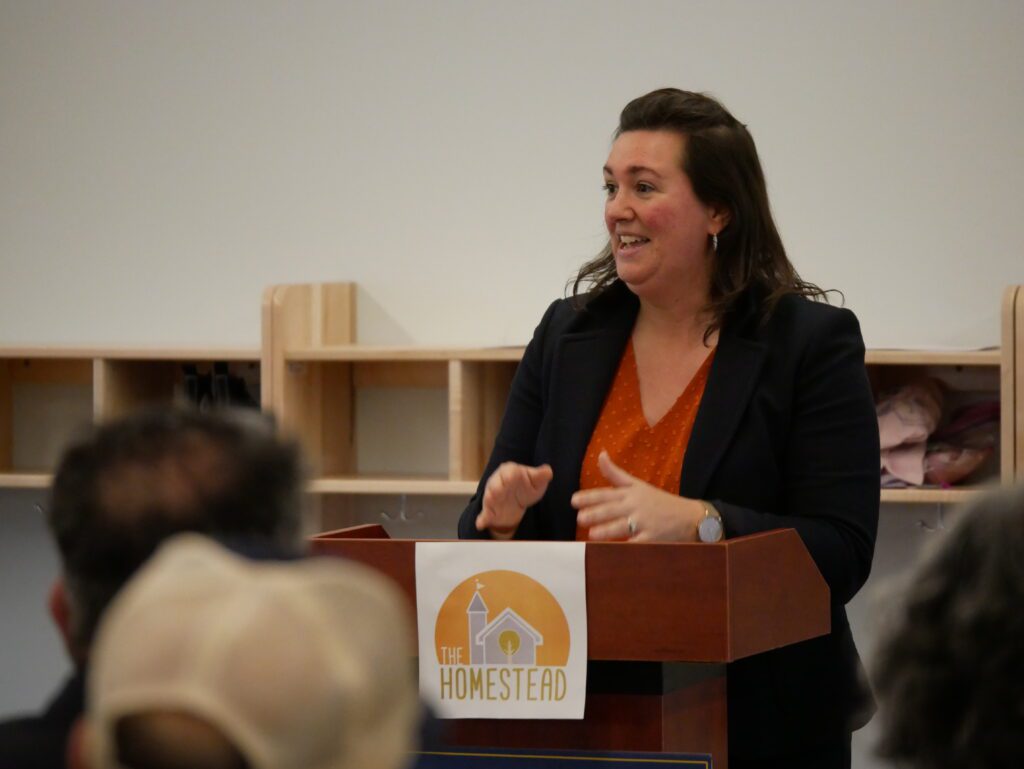
The law, which the legislature passed with bipartisan support and overrode a gubernatorial veto to enforce, will make child care more affordable for families and give funding directly to programs.
As federal pandemic relief funds run out across the country, Vermont is one of several states establishing new public funding sources to bolster child care.
“Young families need housing, and they need child care,” said Vermont Senate President Pro Tem Philip Baruth, one of the supporters of Act 76.
‘Tax me’
Just last year, the owners of The Homestead opened a second site.
Though the expansion meant the program could serve 45 additional children, the community’s response signaled that families needed more slots. The program quickly accumulated a 180-child waitlist.
The owners weren’t sure they were ready to expand further.
“We had just completed a project that stretched us thin financially and emotionally,” Lamphere said.
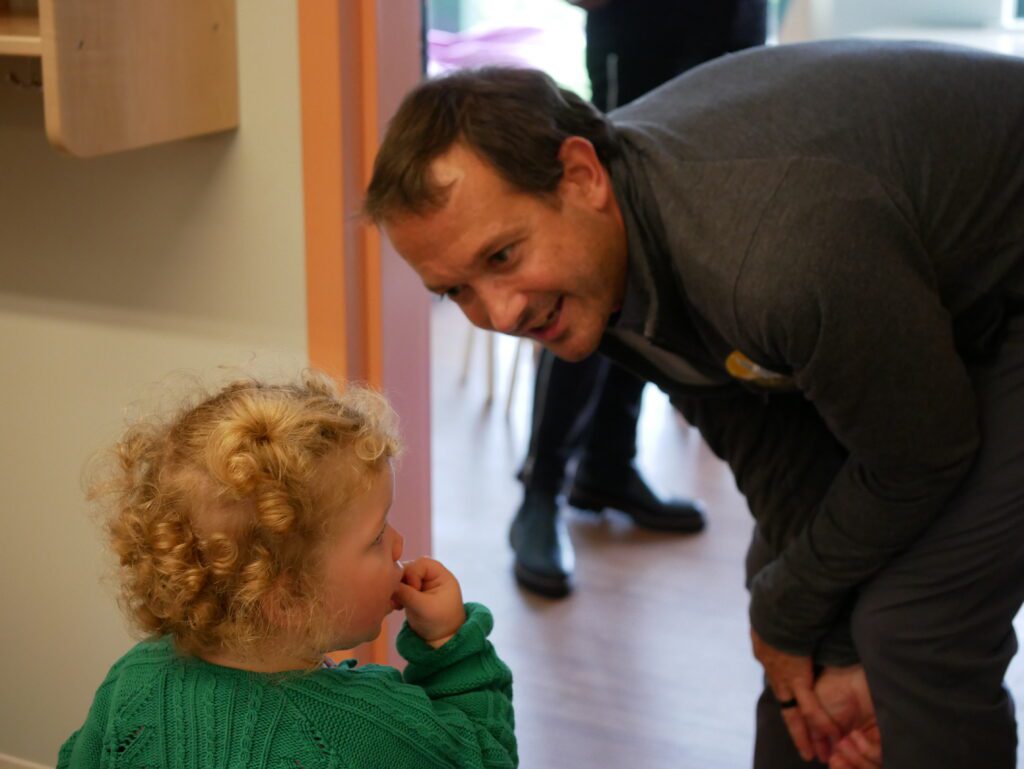
Plus, child care is a difficult industry that experts and economists describe as a broken market because of the high costs for parents and low wages for employees.
This was the reality that advocates at Let’s Grow Kids spent years explaining to anyone who would listen: shoppers at farmer’s markets, legislators, business leaders. That last group, Richards said, was a key part of the organization’s strategy.
The advocates organized a group of seven business leaders and educated them on the systemic issues of child care, as well as the potential returns on investments for their businesses.
“It’s literally not enough money in the system to produce the product and make it affordable for families,” Richards said.
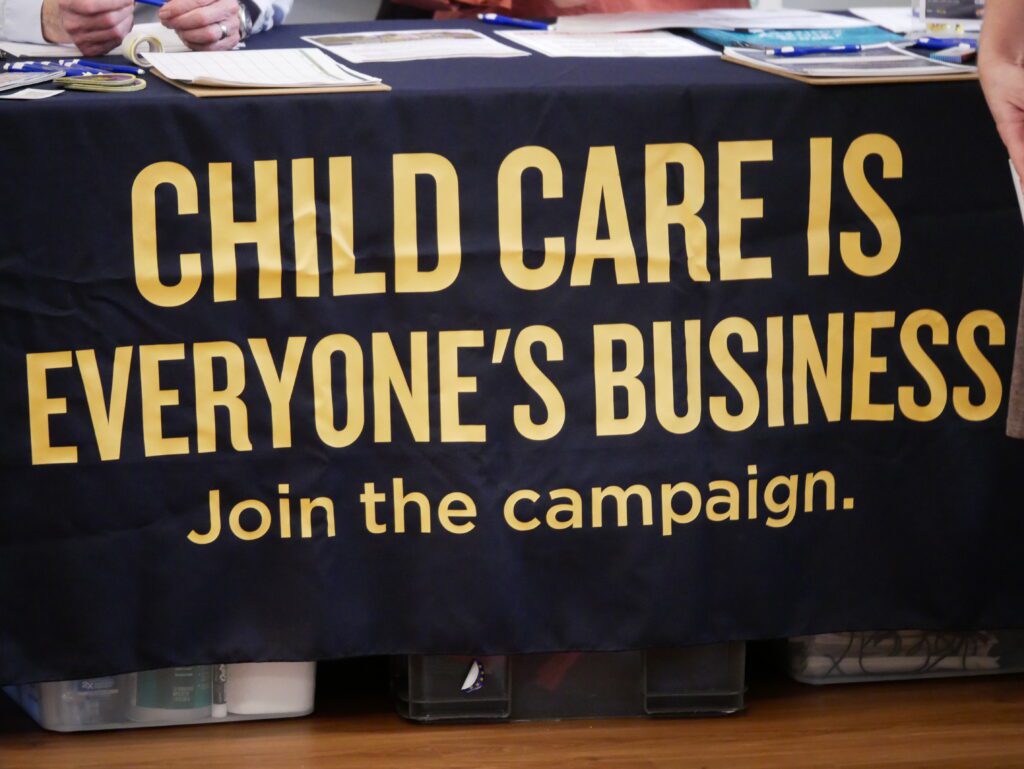
They then asked those leaders to look at the state’s revenue sources. The business owners chose the payroll tax as the best option. Then they told legislators.
“Each of them said, ‘Tax me,’” Richards said. “Vermont makes more money, I make more money, my employees make more money, and we pay off this payroll tax surcharge basically, before half the year’s over. That was the sort of final thing that pushed us over the finish line.”
Act 76 established a payroll tax of 0.11% from employees and 0.33% from employers.
Once the news of the law’s passage made its way to The Homestead’s owners, they decided to move forward with the third location.
“We found ourselves with a renewed confidence, not only to open this new school, but also to provide sweeping compensation increases to all of our teachers,” Lamphere said.
“I’ve worked in child care for 30 years, and I’ve never felt the optimism, excitement, and hope for the future that I feel right now,” he said.

The first ripples of closures
In contrast to Vermont — where early childhood educators now feel confident to expand — North Carolina is already experiencing closures of child care centers as our funding cliff looms.
As EdNC has reported, early childhood education systems across the nation received an infusion of federal funding to help stabilize child care during the pandemic. In North Carolina, those funds are scheduled to run out at the end of June 2024. Advocates and state officials asked legislators this year for a one-time fund of $300 million to help programs avoid that cliff. Legislators did not include that funding in the budget.
Experts expect the loss of those funds to result in a wave of child care closures. We may already be seeing the first ripples.
On October 20, Southwestern Child Development Commission announced the October 31 closure of seven child care centers in the southwest corner of the state.
According to a press release, these centers served a high proportion of children who are eligible for state-subsidized child care. The commission cited the state’s low subsidy reimbursement rates as the direct cause of the closures. It concluded:
Childcare is extremely important in today’s economy. Funding levels do not support adequately our community providers for the amazing services they deliver daily to our young families. The cost of child care is high, very high and parents can’t pay higher child care fees. Staff wages are inadequate for the work that our child care teachers provide. Wages for child care staff must be stabilized and increased. Child care is the workforce behind the workforce and stable funding policies must be developed.

In a response to the announcement, Division of Child Development and Early Education Director Ariel Ford stated:
Without access to additional funding, more child care centers could face closure. Unfortunately, the budget passed by the legislature did not include significant new funding for childcare. State health officials join Governor Cooper in urging the General Assembly to make this child care crisis a priority.
With no new statewide action on the horizon, EdNC is looking to other states (like Vermont) that are leading the way in early childhood policy and investment. We’re also preparing to track additional closures in North Carolina.
The closure of all seven western N.C. sites would affect 300 children and their families — along with the businesses who employ those family members.
But as reported by the Cherokee Scout, one site will remain open. Nicole Smith, who operates Eagle’s Nest Early Learning Center in Waynesville, is taking over operation of the center in Murphy, which serves 50 children.
That leaves 250 children — along with their families and local employers — without clear options for accessing high-quality, affordable early childhood education.




